12 Great Goddesses of Greek Mythology and Their Symbols
Classical Greek Mythology tells stories about the creation of the universe in Ancient Greece and the lives of gods, goddesses and heroes.
Olympus, which is considered to be the place where the gods and goddesses reside in Classical Greek Mythology, is a mountain in the Thessaly region that forms the highest peak of Greece with a height of 2919 meters. Let's look at the Latin names and symbols of the 12 great gods and goddesses who lived here.
1. Zeus/Jupiter
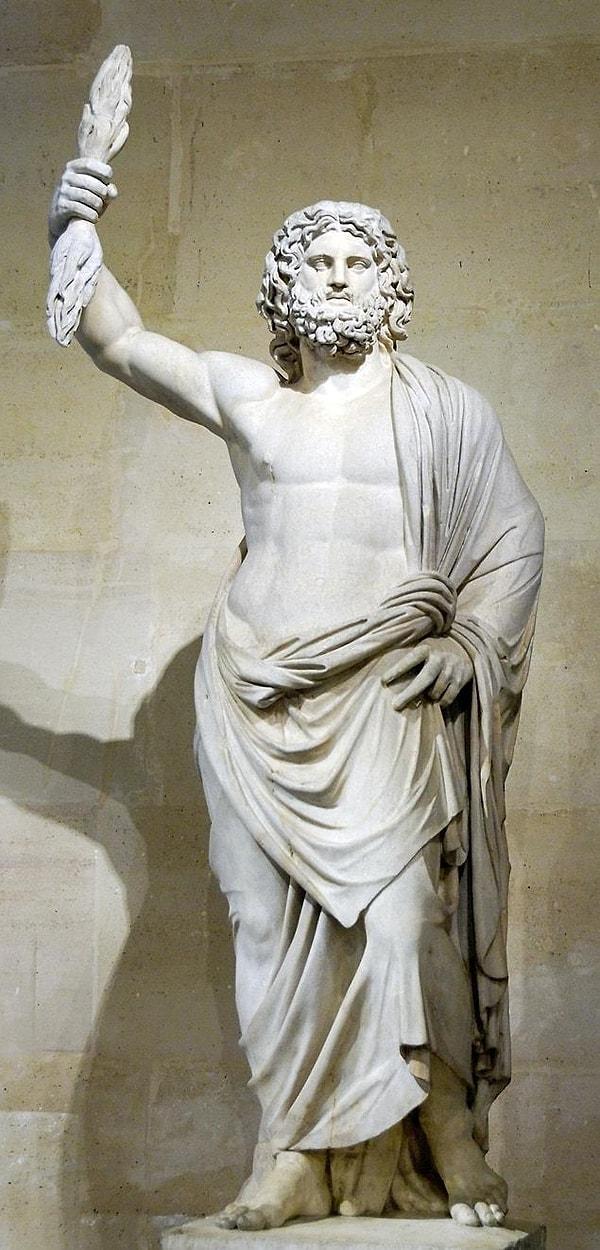
Zeus, who is called the god of the gods, saved his brothers after defeating and eliminating his father Kronos and ensured the beginning of the supremacy of these gods in the universe. Zeus, who is considered the most powerful of the gods, is also famous for his womanizing. He is referred to as Jupiter in Roman mythology.
The statue of Zeus, one of the 7 wonders of the world, was built in 450 BC.

Zeus, who represents the air, is described by Hesiodos in his book Works and Days as carefree, wise, fair and merciful.
The eagle and the thunderbolt are symbols of Zeus.
The Rape of Ganymede, Girolamo da Carpi, 1543-1544
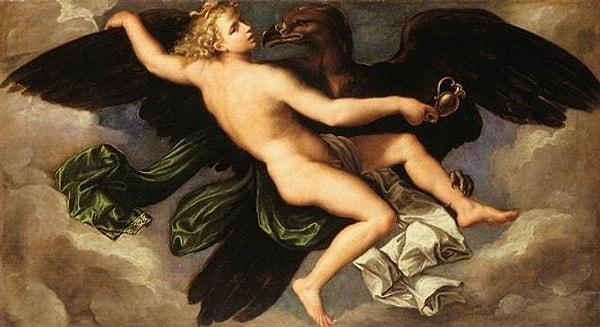
His wife Hera is also his sister. But Zeus was never faithfull to his wife. He has many relationships that are widely known. As a result of these relationships:A lot of gods, goddesses and half-gods like has born Apollo, Artemis, Hermes, Persephone, Persephone, Dionysus, Perseus, Minos, Mousas and the great Heracles.
2. Hera/ Juno
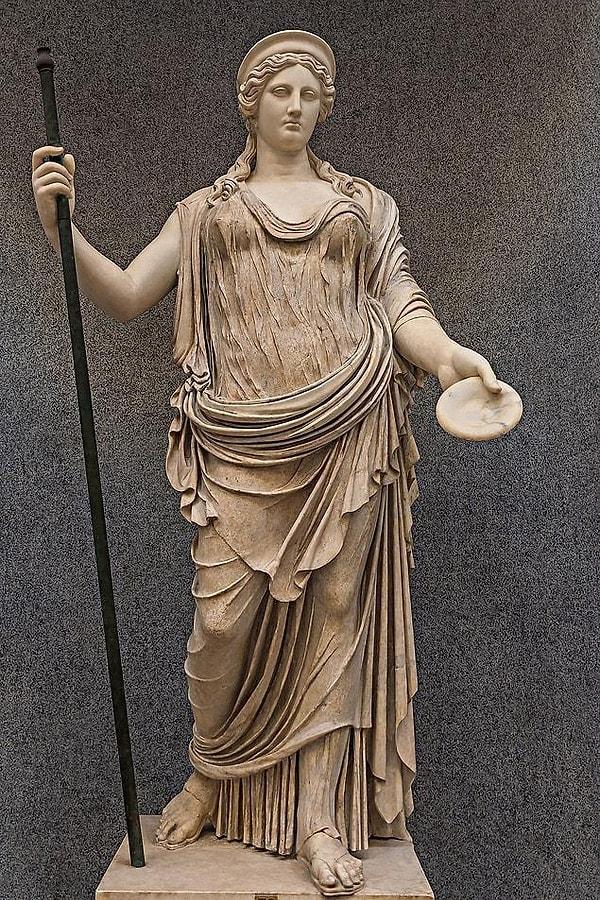
Hera, the sister of Zeus, is the goddess of family and marriage. Hera, who was also the wife of Zeus, is the subject of mythological stories with her anger and jealousy towards Zeus' children from other relationships. Heracles is one of the most well-known among them. Although she is mentioned as Zeus' first wife, some sources also say that she was his last wife. She is called Juno in Roman mythology. Some of the symbols of Hera, known as cow-eyed, are the cow, peacock, pomegranate and crown.
Athena Fountain, Zeus and Hera, Vienna Parliament Building, Austria
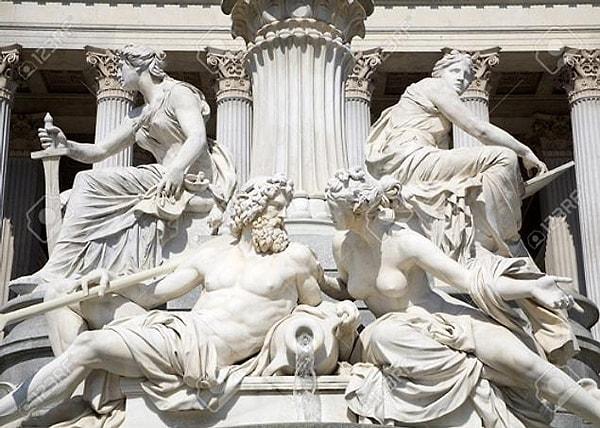
Known as the queen of the gods, Hera represents the sky.
The wedding of Zeus and Hera is known as the sacred wedding.
3. Athena/Minerva
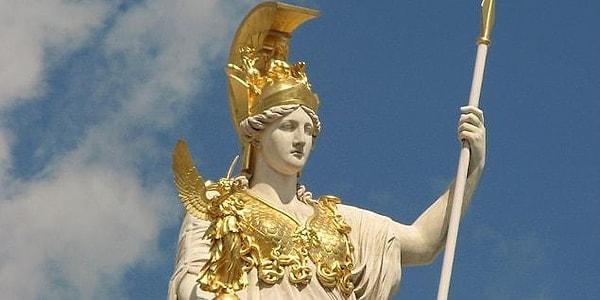
She is a goddess of war and protector. She carries a special shield made by her mother Aegis. Athena's birth is different from normal births. She is born from the head of her father Zeus. She is also known as a goddess of wisdom and intelligence. She is also said to have been born as an armed warrior, holding a spear in her hand.
Athena Fountain, Vienna Parliament Building, Austria, Carl Kundmann, 1893-1902
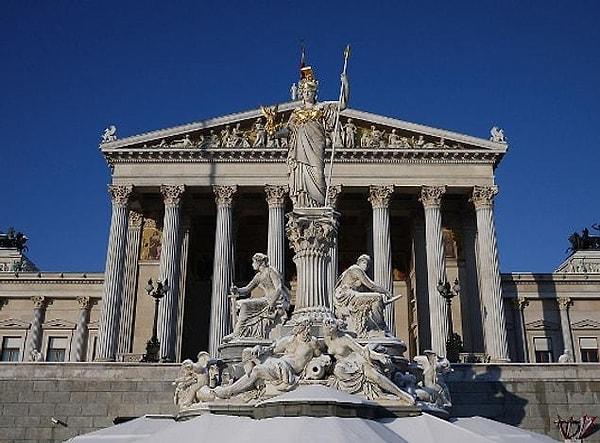
Athena, who created the olive tree in a contest with Poseidon, is also the goddess who cursed Medusa. Known as Minerva in Roman mythology, her most important symbols are the owl, the shield and the head of Medusa.
4. Poseidon/Neptune
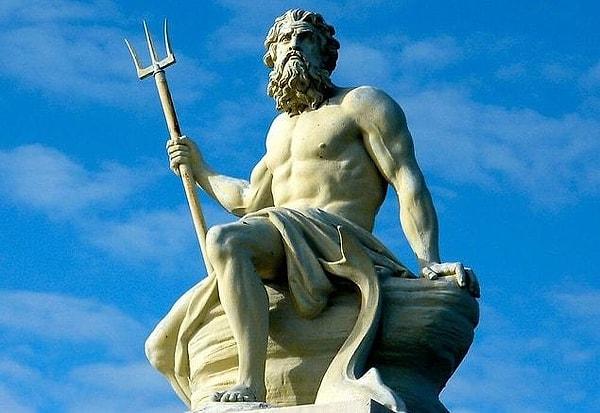
After Zeus defeated Cronus, he saved his brothers and one of his brothers, Poseidon became the god of the seas. Poseidon rules the seas and is also known as the god of earthquakes. Called Neptune in Roman mythology, Poseidon's symbols are the trident, the sea and the horse.
Neptune Fountain, 1574, Piazza Navona, Rome
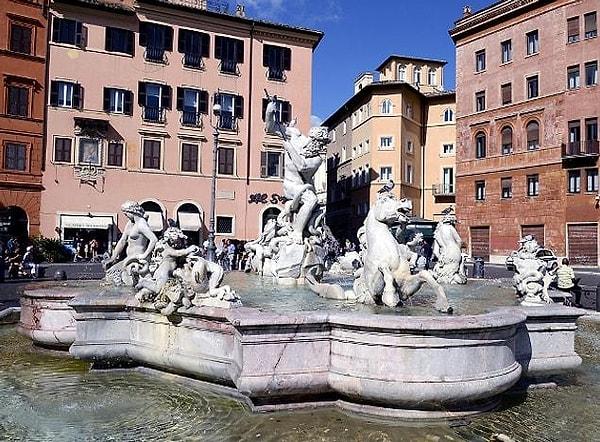
5. Apollo
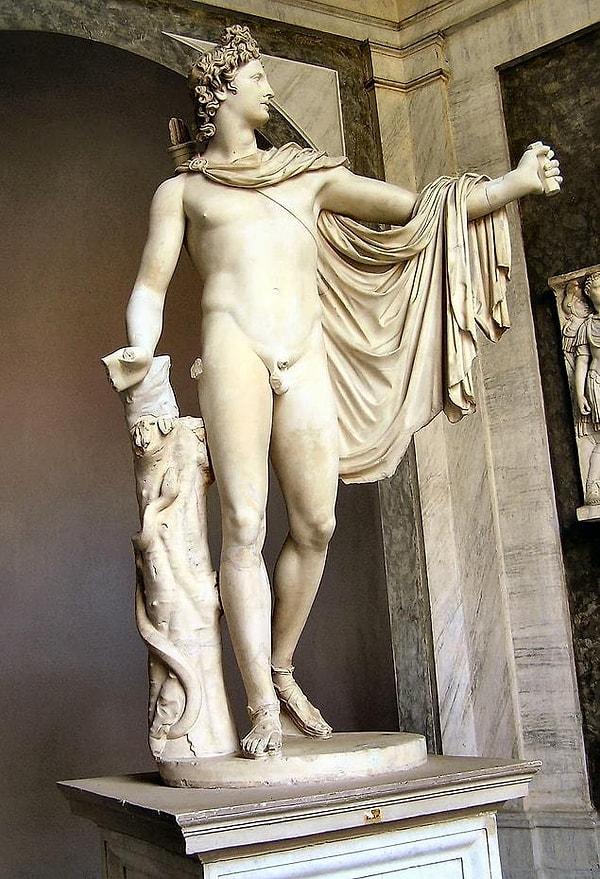
Apollo, one of the twin gods, is the son of Zeus and the titan Leto and he is the god of the sun and light. Apollo, who is also the god of music and art, appears everywhere in mythology, especially where the subject of wisdom is mentioned.
The symbol of Apollo, who represents the sun, is the bow and lyre.
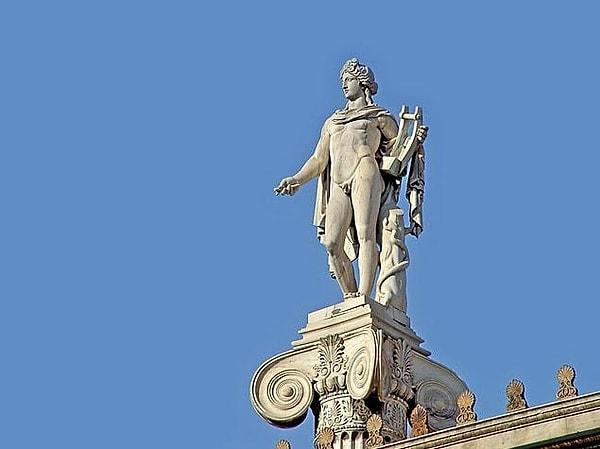
Apollo, one of the gods known as Anatolian, is especially mentioned in the Lycian region. Didim Temple of Apollo is one of the two most important centers of wisdom in ancient times. Apollo, one of the most mentioned gods in mythology, is known as Apollo in Rome.
6. Artemis/ Diana
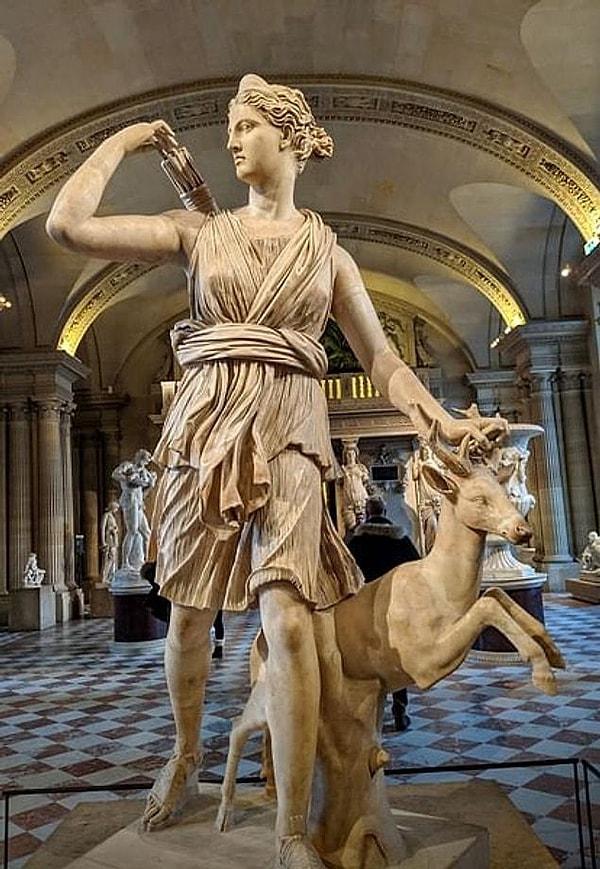
Artemis, the twin sister of Apollo, is also known as the continuation of the cult of the Mother Goddess, which is rooted in Anatolia. The trinity of the Mother Goddess, Artemis and the Virgin Mary is a continuation of each other, especially in Ephesus. Artemis, who sided with her brother Apollo on the side of the Trojans in the Trojan War, is known as Diana in Roman mythology.
Artemis, Jean-Baptiste Tuby, 1687

The goddess of the moon and the hunt, Artemis' most well-known symbols are the deer and the bow. Symbolizing the earth, mother goddess and fertility
7. Hermes/ Mercury
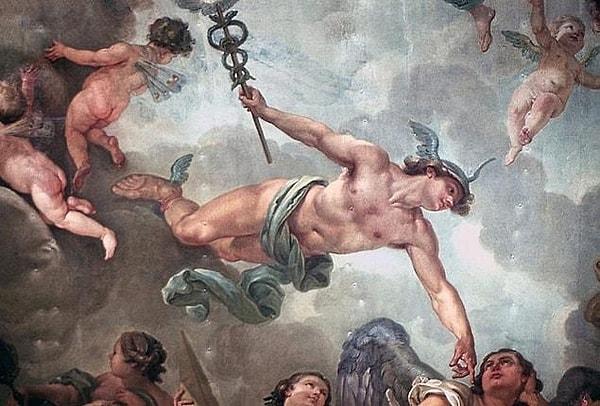
Hermes, the messenger of Zeus, is the son of Zeus and Maia. Hermes, called Mercury by the Romans, is the fastest of the gods. His most important symbols are the winged sandals that allow him to fly fast and the turtle. He wields a staff called kerykaion.
Hermes takes the dead to the land of the dead.
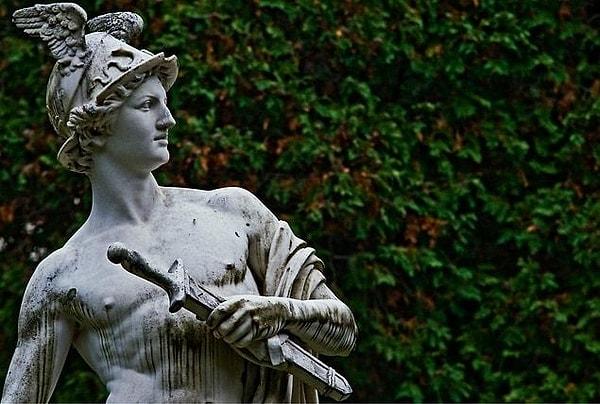
8. Aphrodite/ Venus
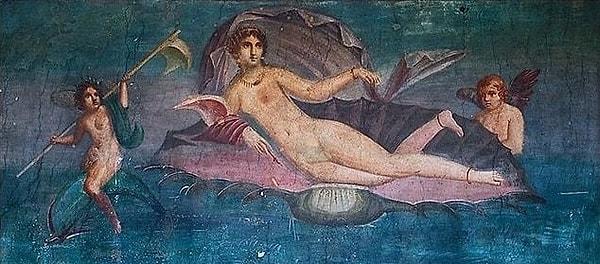
The goddess of beauty and love is shown with eros. She is the wife of Hephaistos and the lover of Ares.
According to some sources, she is also the mother of Eros, the god who makes everyone fall in love with each other with his arrows. Known as the Venus of Rome, her symbols include the rose, the mirror and the dove.
The Birth of Venus, Botticelli, 1485, Uffizi, Florance
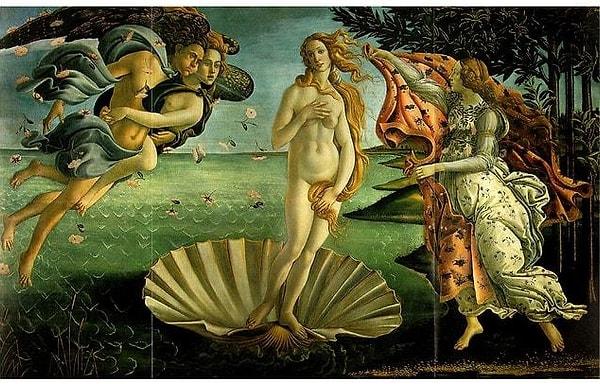
The birth of Aphrodite, the goddess of beauty and love, is quite different from that of the other gods. Cronus cuts off his father's genitals with the scythe given by Gaia and throws it into the sea. As a result, Aphrodite was born on the shores of Cyprus from the white foam in the sea.
9. Ares/ Mars
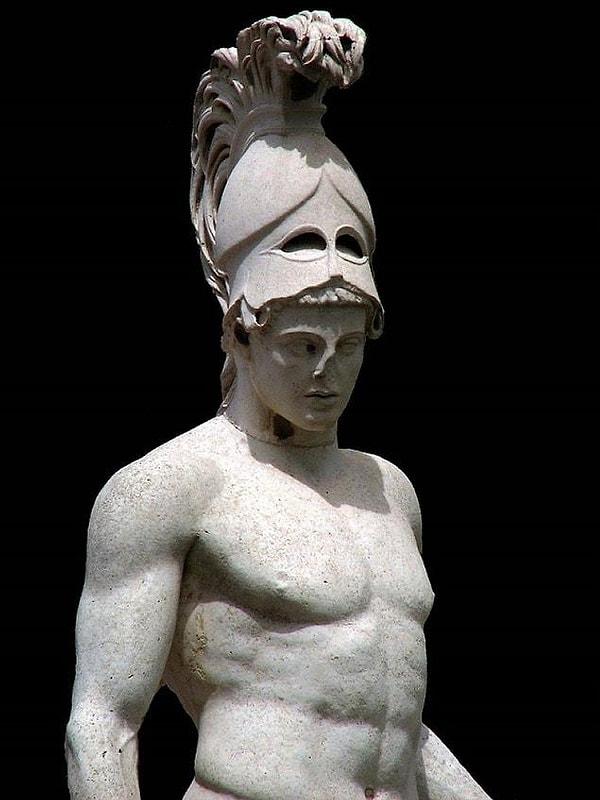
The child of Zeus and Hera, Ares is the god of war. Although she was not a very popular goddess in Greek mythology, she became a very important god in Rome.
He is also known for revealing his relationship with his beloved Aphrodite by Hephaistos.
He wields a spear and a helmet.
10. Hephaistos / Vulcan
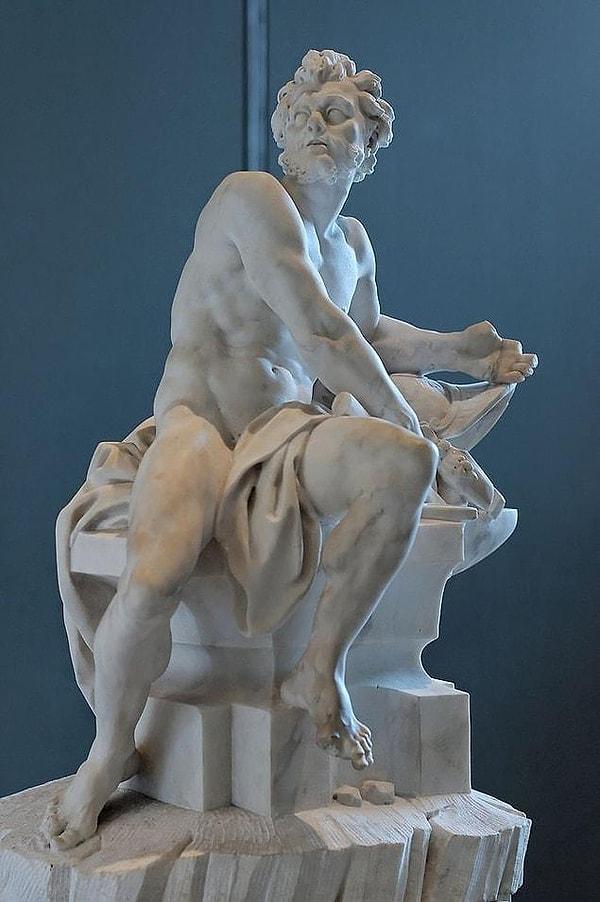
Hephaistos, another son of Zeus and Hera, is also said to have been born on her own by Hera alone.
Although he is despised as the lame and ugly god of Olympus, he crafts all kinds of metals and creates objects of beauty and craftsmanship that would make anyone jealous. This god of craftsmanship, a master of iron, made weapons and armor for many gods, goddesses and heroes.
The Forge of Vulcan, Valezquez, 1630
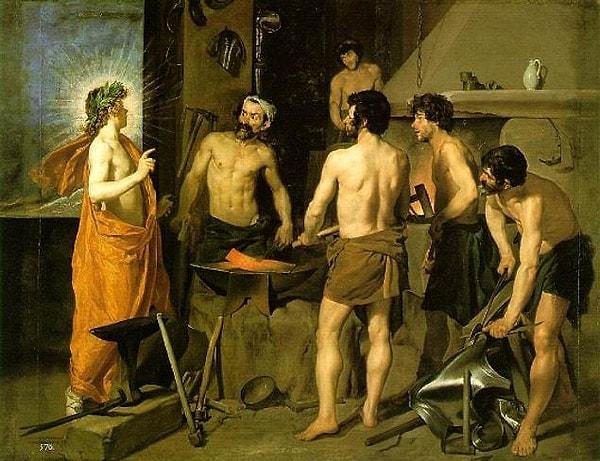
One of the most striking examples of the contrast in Olympus is the marriage between the beautiful Aphrodite and this lame and ugly god. The symbols of Hephaistos, whom the Romans called Vulcan, are the hammer and the volcano.
11. Demeter/ Ceres
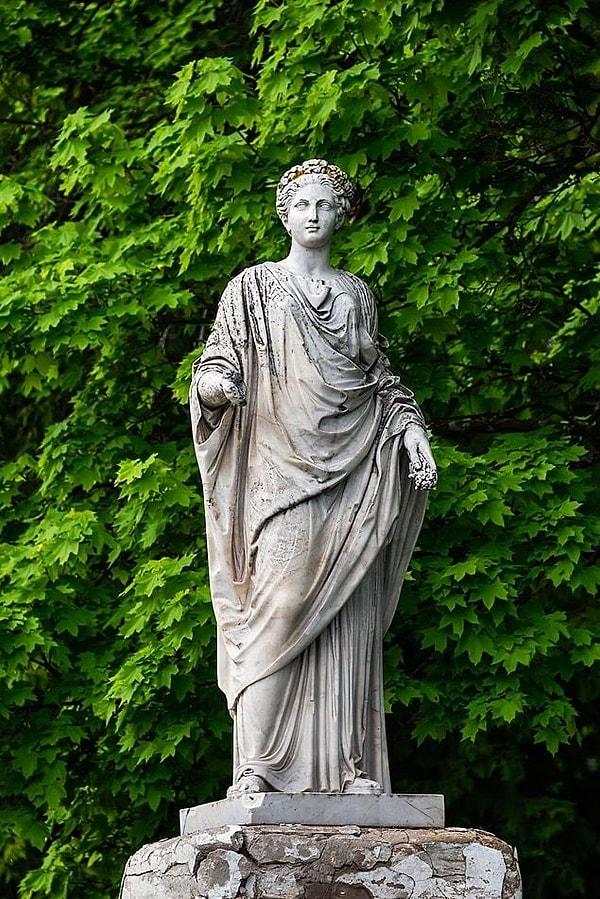
She is a goddess of fertility and teaches people how to sow and reap wheat. Demeter, who is the beautiful-haired sister that Zeus saved among the children of Cronus and Rhea, is known as the goddess of harvest and fertility. In Roman mythology, she is known as Ceres and her symbol is a wheat ear.
Demeter, Floor Mosaic, Zeugma Museum
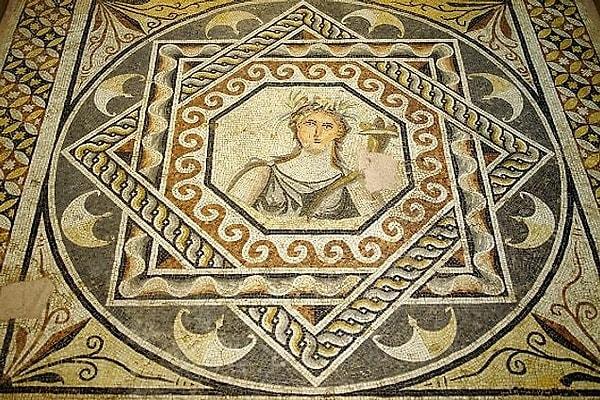
The abduction of Persephone, the daughter of Zeus and Demeter, by Hades to the underworld and the events that followed is the most well-known myth about Demeter.
12. Hestia / Vesta
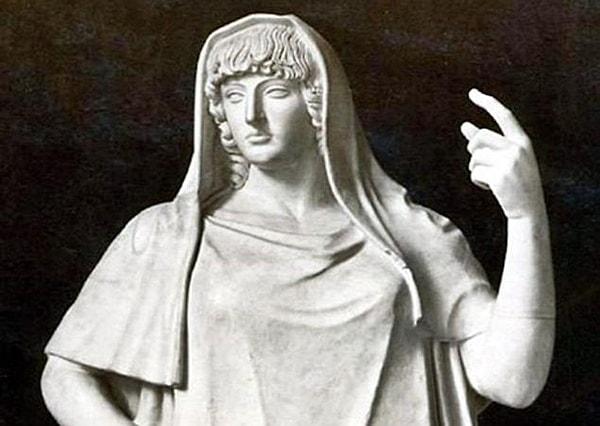
In addition to being the kindest of the divine beings, she is also known as the most generous and virtuous goddess. The symbols of the goddess, called Vesta in Rome, are fire and house. Apart from the hearth fire, donkey and pig are also among her symbols.
Hestia is usually depicted as a mature woman in statues and paintings.

Hestia, the goddess of the hearth and family, is the first daughter of Kronos and Rhea and one of Zeus' sisters. She is a goddess who did not marry throughout her life. Although she is one of the Olympian gods, she does not want to live long in this chaotic environment; after a while she leaves and it is said that Dionysus takes her place.
Keşfet ile ziyaret ettiğin tüm kategorileri tek akışta gör!


Send Comment